One would not think that a Facebook status or a tweet could land you in jail, at least not in the world's largest democracy.
However, the reality is a lot more brutal in India, which has a shameful history of locking up its citizens for dissenting viewpoints.
According to the Mint newspaper (external link), at least 50 people have been arrested through 2017 and 2018 for posts on social media.
Syed Firdaus Ashraf/Rediff.com lists 10 prominent cases.
Prashant Kanojia
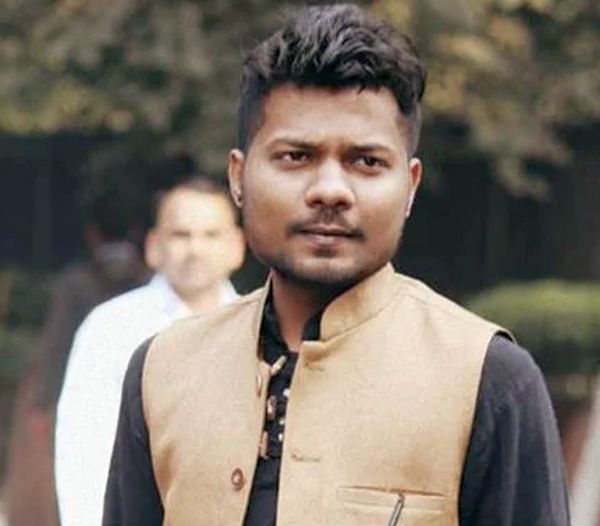
Freelance journalist Prashant Kanojia was arrested by the Uttar Pradesh police for posting a tweet on Chief Minister Ajay Singh Bisht aka Yogi Adityanath on June 8, 2019.
Kanojia was picked up from his home in Delhi after a complaint by a police officer in Lucknow, alleging he tried to 'malign' Bisht's image.
Kanojia's 'crime': He had shared a video on Twitter and Facebook of a woman claiming that she had sent the chief minister a marriage proposal.
On June 11, the Supreme Court asked the Bisht government to release Kanojia immediately, saying that the 'right to liberty is non-negotiable'.
While granting Kanojia bail, the apex court questioned the Bisht government why he was arrested and under what provisions of the law.
Priyanka Sharma

Priyanka Sharma, a member of the Bharatiya Janata Party's Yuva Morcha, was arrested in May for a meme she posted on West Bengal Chief Minister Mamata Banerjee.
In the meme, Banerjee's face was superimposed on actress Priyanka Chopra's Met Gala 2019 look.
The Supreme Court granted Sharma bail, but asked her to tender an unconditional written apology on her release.
The case will be next heard in July on the question of laws concerning the freedom of speech and expression.
Aseem Trivedi
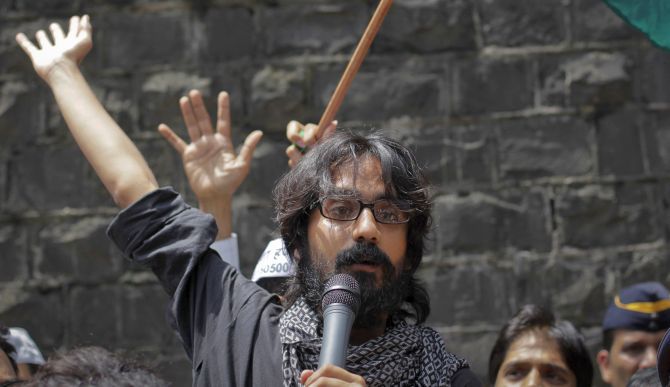
Cartoonist Aseem Trivedi was arrested on a private complaint in 2012 after his illustrations -- Cartoons Against Corruption -- circulated during the anti-corruption movement led by Kisan Baburao 'Anna' Hazare in 2012.
The cartoons were criticised for insulting the National Emblem and making a mockery of Parliament. The Kanpur-based cartoonist was arrested for sedition and also charged under the IT Act and the 1971 National Emblem Act on September 8, 2012.
Trivedi spent two months in jail after which the charges were dropped by the government.
Ambikesh Mahapatra

Ambikesh Mahapatra, a chemistry professor at Jadavpur University, was jailed in 2012 on charges of sharing an allegedly defamatory cartoon of West Bengal Chief Minister Mamata Banerjee via e-mail.
Professor Mahapatra allegedly uploaded a caricature that showed Banerjee and her then lieutenant Mukul Roy (now with the BJP) discussing how to get rid of party MP and former railway minister Dinesh Trivedi.
The comic strip was inspired by legendary film-maker Satyajit Ray's iconic movie Sonar Kella. Mukul is the name of the child protagonist in Ray's film.
In 2015, the Calcutta high court ordered the Banerjee government to pay Professor Mahapatra compensation as decreed by the state Human Rights Commission and an additional Rs 25,000 for legal expenses.
In August 2012, the state Human Rights Commission, led by retired Supreme Court judge Justice Ashok Ganguly, ordered that Professor Mahapatra and his friend Subrata Sengupta, who was also arrested in the case, be paid a compensation of Rs 50,000 each.
The Banerjee government ignored the order; the state will now have to pay Professor Mahapatra and Sengupta Rs 75,000 each.
Shaheen Dhada

A day after Shiv Sena supremo Bal Thackeray's death, 21-year-old Shaheen Dhada took to Facebook criticising the subsequent shutdown in transport and services which had brought Mumbai and surrounding areas to a standstill.
The FB post didn't mention Thackeray by name, but within 20 minutes Shaheen started receiving phone calls from friends, saying she should take it down and say sorry.
Shaheen deleted the comment, but was arrested under Section 295a of the Indian Penal Code (for 'deliberate and malicious acts, intended to outrage religious feelings or any class by insulting its religion or religious beliefs').
This was later changed to Section 505-2 of the IPC ('statements creating or promoting enmity, hatred or ill-will between classes'), before she was finally charged under Section 66a of the Indian IT Act ('sending false and offensive messages through communication services').
The young woman's arrest led to outrage, with many accusing the government of 'abuse of authority'. After a month, the Maharashtra police dropped all charges against Dhada.
Abhijit Iyer-Mitra

Journalist Abhijit Iyer-Mitra was arrested in 2018 by the Odisha police for a tweet about the Konark Sun Temple that was deemed to be 'derogatory and very, very objectionable'.
The case were lodged following Iyer-Mitra's tweets on September 16 last year mocking the erotic sculptures in the 13th century temple at Konark as well as another disparaging post on the 12th century Jagannath temple.
He was accused of deliberate and malicious acts intended to outrage religious feelings, using words deliberately intended to wound the religious feelings of any person, promoting enmity between different groups on grounds of religion under the Indian Penal Code and under Section 66a of the IT Act.
He was in jail for a month before the Odisha government on December 4 said it would not grant permission to prosecute Iyer-Mitra since the stte assembly had 'forgiven' him in the cases against him.
Mohammad Shaqib
In November 2017, a 19 year old from a small village in Vikasnagar, Uttarakhand, was arrested by a Haryana police team which traveled 250 km from Tohana in Fatehabad district to nab the teenager for allegedly sharing an 'offensive and morphed' photo of Prime Minister Narendra Damodardas Modi.
Shaqib spent eight days in a juvenile home for his 'crime'. He was booked under Section 67 (publishing or transmitting obscene material in electronic form), 67A of the IT Act (transmission or publishing of sexually explicit material), and Section 292A (putting into circulation a grossly indecent or scurrilous picture) of the IPC.
It has been almost a year since Shaqib's arrest and the case continues. His father has decided not to give him a smartphone again.
Aleem Ahmad
On August 16, 2018, when the nation mourned former prime minister Atal Bihari Vajpayee's death, 17-year-old Aleem Ahmad, a resident of Meerut in Uttar Pradesh, wrote a Facebook post expressing anger against Vajpayee and implicitly pointing to his role in the demolition of the Babri Masjid.
Three days later, 15 policemen came to his house, harassed his family, before Aleem was booked under a range of sections of the law.
According to media reports, the case continues. Aleem doesn't regret his post, but he is sorry as his family now has to tolerate being called 'anti-national' by their neighbours.
Shiva Raj aka Comrade Kovan
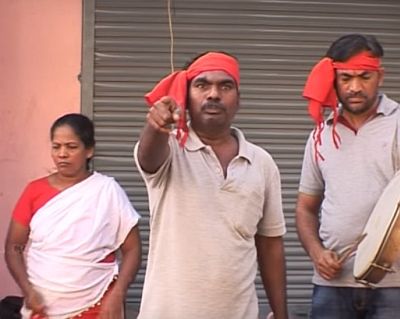
The Leftist folk singer was arrested in October 2015 for alleged sedition and uploading defamatory content against then Tamil Nadu chief minister J Jayalalithaa.
'Comrade' Kovan, a Tiruchirappalli district functionary of the art and literary outfit Makkal Kalai Ilakkiya Kazhagam, was arrested under various sections of the IPC.
The alleged defamatory content in the form of videos were uploaded on some Tamil Web sites and also went viral in messaging mediums like WhatsApp.
The Supreme Court later dismissed the case against Kovan.
Siddaraju and Chamaraju
In June, two men, later identified as Siddaraju, a petrol pump attendant, and Chamaraju, a cab driver, were arrested for allegedly posting a video abusing former prime minister H D Deve Gowda and his family on social media.
The two were arrested under IPC sections 504 (intentional insult with intent to provoke breach of the peace) and 505 (statements conducing to public mischief).
According to the police, the duo was peeved at the Janata Dal-Secular's poor performance in the Lok Sabha election and blamed Deve Gowda's 'family politics' for it.








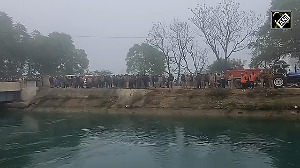
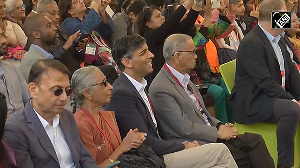
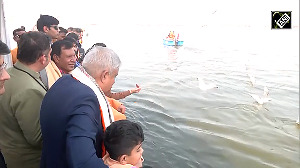
 © 2025
© 2025